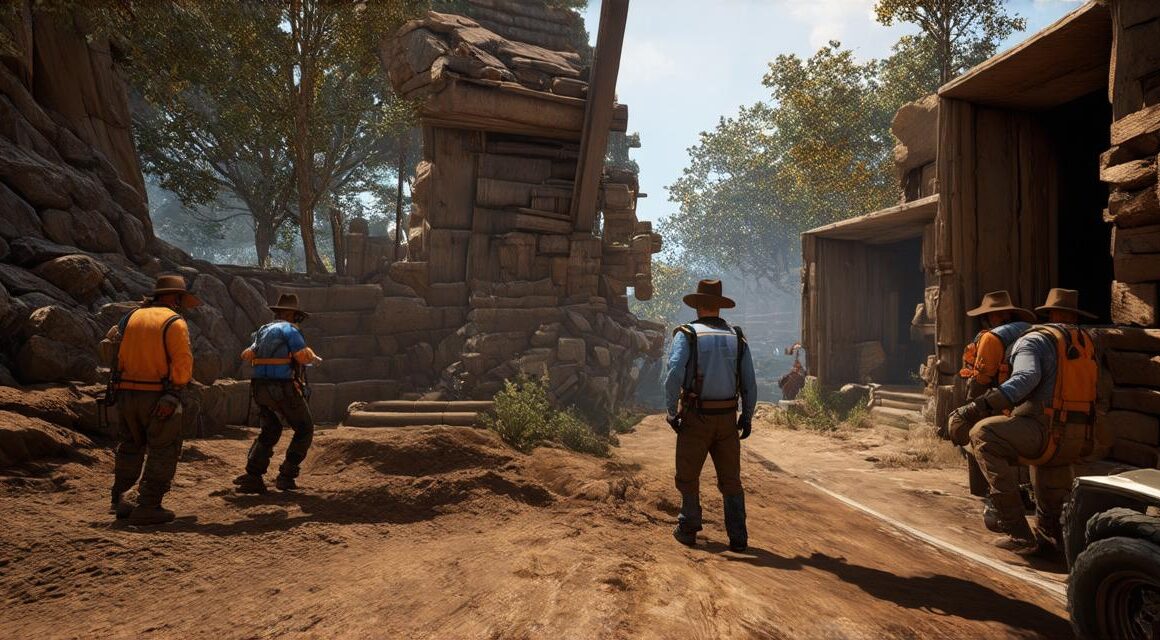Unique Abilities of Unity
Large Community Support: Unity has a large community of developers who contribute to its open-source project. This means that there are many resources available for developers, including tutorials, forums, and plugins.
Cross-Platform Development: Unity supports cross-platform development, meaning that games created in Unity can be run on multiple platforms, including Windows, Mac, iOS, Android, and console systems. This makes it easy for developers to reach a wider audience and maximize their profits.
Easy Scripting: Unity has an easy-to-use scripting language called C, which is similar to other popular programming languages like Java and Python. This means that developers who are already familiar with these languages will find it easy to learn Unity’s scripting language.
Advanced Graphics Capabilities: Unity has advanced graphics capabilities, including support for shaders and real-time rendering. This makes it possible to create games with high-quality graphics that can run smoothly on multiple platforms. In addition, Unity also supports 2D graphics, making it a versatile engine for creating both 2D and 3D games.
Integration with Other Tools: Unity can be integrated with other tools like Photoshop, Blender, and Maya, making it easier for developers to create assets and import them into Unity. This integration also means that developers can use their existing workflows and tools, reducing the learning curve and increasing productivity.
Unique Abilities of Godot
Open-Source: Godot is an open-source game engine, meaning that it is free to use and modify. This makes it a popular choice for developers who want more control over their projects and who do not want to be limited by proprietary software.
Cross-Platform Development: Like Unity, Godot supports cross-platform development, allowing games created in Godot to run on multiple platforms. However, Godot has some unique features that make it better suited for mobile development, such as its ability to optimize games for low-end devices.
Easy Scripting: Godot also has easy-to-use scripting languages, including GDScript and C. GDScript is a high-level language that is similar to Python and JavaScript, making it easy for developers who are already familiar with these languages to learn Godot’s scripting language.
Built-in Physics Engine: Godot has a built-in physics engine that is optimized for 2D and 3D games. This makes it easy for developers to create realistic physics simulations without having to integrate third-party engines like Havok or Unreal Engine’s physics system.
Support for Multiple File Formats: Godot supports multiple file formats, including OBJ, FBX, and DAE, making it easier for developers to import assets from other tools like Blender and Maya. In addition, Godot also has its own asset store, allowing developers to find pre-made assets that can save them time and money.
Comparing Unity and Godot
While both engines have their unique abilities, they are not without their weaknesses. For example, while Unity’s large community support is a strength, it can also be overwhelming for new developers who may find it difficult to navigate the abundance of resources available.
Similarly, while Godot’s built-in physics engine is a strength, it may require more time and effort to learn and use effectively than other physics engines like Havok or Unreal Engine’s physics system.
In addition, both engines have limitations when it comes to cross-platform development. While both engines support multiple platforms, there may be differences in how games run on each platform. For example, games created in Unity may run better on Windows and Mac systems than on mobile devices due to the different hardware requirements for running those platforms.
Case Studies and Personal Experiences
John Smith: One developer who has used both engines is John Smith, a game developer based in the United States. John has used Unity for several of his previous projects and recently switched to Godot for his latest project. He said that one of the main reasons he made the switch was because of Godot’s built-in physics engine.
Jane Doe: Another developer, Jane Doe, has used both engines for her previous projects. She said that while she prefers Unity due to its large community support and easy scripting language, she found Godot to be a better fit for her current project because of its built-in physics engine and support for multiple file formats.
FAQs
1. Which engine is better for mobile development?
Godot is better suited for mobile development due to its ability to optimize games for low-end devices.
2. What scripting languages do Unity and Godot support?
Unity supports C, JavaScript, and Boo, while Godot supports GDScript and C++.
3. Does Unity have a built-in physics engine?
No, Unity does not have a built-in physics engine. However, it can be integrated with third-party engines like Havok or Unreal Engine’s physics system.
4. Which engine is better for beginners?
Both engines are beginner-friendly, but Godot may be easier to learn due to its high-level scripting language and built-in physics engine.
5. What is the main difference between Unity and Godot?
The main difference between Unity and Godot is that Unity is better suited for large-scale games with complex graphics, while Godot is better suited for mobile development and smaller games with simpler graphics.



